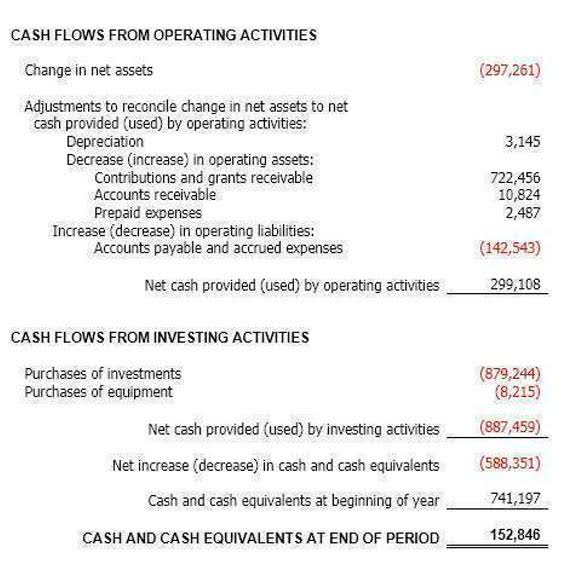The Importance of the Going Concern Assumption in Financial Reporting and Analysis 15 april 2025 – Posted in: Bookkeeping

In addition, management must include commentary regarding its plans on how to alleviate the risks, which are attached in the footnotes section of a company’s 10-Q or 10-K. The reason the going concern assumption bears such importance in financial reporting is that it validates the use of historical cost accounting. The concept directly impacts how assets and liabilities are reported on the balance sheet. For example, if management said that the company is operating well, but auditors noted that the sales revenue is decreasing significantly.
- The going concern assumption is a fundamental concept in accounting that assumes a company will continue operating for the foreseeable future.
- According to GAAP guidance, disclosures must be made as soon as a conclusion of substantial doubt is reached.
- Adjusting operational processes, staffing, and addressing any financial concerns today will help ensure that the business remains successful tomorrow and in the years to come.
- The assumption underlying the going concern concept is that an entity will continue operations, which must be the foundation on which accountants construct financial statements.
- – Assume Microsoft is currently suing a small tech company for copyright violation over its software package.
The concept of going concern
Given the significant effects of COVID-19, management may need to reassess the company’s access to financing sources; they may not be easily replaced and the going concern costs may be higher in the current circumstances. Further, other actions such as deferring capital expenditures or adjusting the workforce may be needed to generate enough cash flow to meet the company’s financial obligations. US GAAP includes a two-step process that first determines whether substantial doubt about the company’s ability to continue as a going concern is raised. If substantial doubt is raised, management then assesses whether that substantial doubt is alleviated by management’s plans.
- In such situations, restructuring plays an essential role in addressing financial instability and regaining the confidence of investors, customers, and creditors.
- It is essential for investors, shareholders, and lenders to be aware of any doubts regarding a company’s ability to remain a going concern so that they may make informed decisions about their investments.
- The cash flow statement categorizes these flows into operating, investing, and financing activities.
- An analyst values the business after looking at the recent trend of the business and the company’s potential to earn profits.
- Related to the going concern of the company, auditors are not responsible for assessing the going concern of the company.
- In short, going concern refers to a business’s ability to continue operating in the near future, usually for at least the next year.
- Management must assess a company’s ability to continue as a going concern, typically for at least 12 months from the reporting period’s end.
Implications of a Negative Report

The accompanying financial statements have been prepared assuming that the Company will continue contra asset account as a going concern. Management’s evaluation of the events and conditions and management’s plans regarding these matters are also described in Note 2. The financial statements do not include any adjustments that might result from the outcome of this uncertainty.
EY Gets Caught Up in Independence Violations Because Audit Partner Rotation Is For Chumps
This is where a candidate explores all possible options rather than coming to a conclusion as to the auditor’s opinion, depending on the circumstances presented in the question. Many candidates fall into the trap of relying on ‘discussions with management/directors’ and ‘obtaining a written representation’. This could be achieved by issuing new shares of stock or by securing additional capital contributions from existing owners. The success of such a plan is contingent on market appetite for the company’s stock or the owners’ willingness to inject more funds. Legal proceedings or regulatory actions could result in financial penalties or operational restrictions that jeopardize the business. The loss of a key franchise, license, or patent, or the departure of a principal customer or supplier can also create a financial crisis.

- We put environmental analysis in the first point because sometimes most of the management consider mainly the financial problems when performing going concern analysis.
- While the concept underpins financial reporting, it’s crucial to remain vigilant and analyze potential risks that could threaten a company’s ability to continue as a going concern.
- This principle is essential in accounting, as it allows businesses to allocate expenses and revenues over multiple accounting periods.
- The Financial Accounting Standards Board (FASB) mandates that a company’s financial statements reveal conditions that support substantial doubt regarding its ability to continue as a going concern for one year following the audit.
- If nothing about the going concern is mentioned in the financial statementnotes, it is assumed that the company faces no threatening financial problems.
- In summary, understanding the conditions that may lead to doubts about a company’s ability to continue as a going concern is essential for both businesses and investors alike.
The How to Invoice as a Freelancer going concern concept or going concern assumption states that businesses should be treated as if they will continue to operate indefinitely or at least long enough to accomplish their objectives. In other words, the going concern concept assumes that businesses will have a long life and not close or be sold in the immediate future. The disclosure must also detail management’s plans intended to mitigate these conditions. This provides a balanced view, showing that management is actively trying to resolve the issues, even if the plans are not deemed sufficient.
- Going concern value is often contrasted with liquidation valuation, which examines the net realizable value of a company’s assets if operations cease.
- Therefore, the change in value is not realizable; Douglas and his company must not consider the going concern assumption.
- It represents a company’s ability to continue operations into the foreseeable future, influencing assessments beyond immediate asset liquidation values.
- The reason the going concern assumption bears such importance in financial reporting is that it validates the use of historical cost accounting.
- This can make the company’s financial position look worse and can affect its ability to attract investors or secure loans.
- The owner or the top management has found new customers and maintained its existing ones to keep the company’s organic and inorganic growth.
- When faced with uncertainty about a company’s future as a going concern, they might prefer liquidation to recover their debts rather than waiting for an uncertain outcome from reorganization efforts.
Therefore, it may be noted that companies that are not going concerns may need external financing, restructuring, or asset liquidation. A going concern is a business that is financially stable and is expected to continue operating indefinitely. This concept not only helps build a more systematic approach to the recording of the financial information, but it also provides a reasonable understanding of the business, its growth and long-term financial stability. In the event, an accountant accepts that a company is no longer going to be a going concern, this raises the issue of whether its assets are impaired, which may require the write-down of their cost to their liquidation value. Along these lines, the value of a company that is thought to be a going concern is higher than its breakup value since a going concern can possibly keep on earning profits.


However, when a company depends too much on one patented item for the bulk of its income, this loss can be the beginning of that organization’s end. The end of a protected patent period results in an increase in competition in the marketplace and usually a significant price drop for the item in question. This is done for both tax and insurance purposes and to accurately record the proceeds from the sale of the item in the books. It is a routine procedure for many businesses and often occurs when a business is purchasing new equipment. Additionally, a company’s reputation can be seriously damaged by litigation, even if they are found to be not at fault.

Management needs to incorporate in their assessment based on their knowledge and awareness about what going on in the business. Then we should consider whether auditors put all possible procedures that should be performed or not. Related to the going concern of the company, auditors are not responsible for assessing the going concern of the company. If the entity’s Financial Statements are prepared in accordance with IFRS, the standard dealing with going concerned is IAS 1. The standard requires the Financial Statements to properly disclose the basis of preparation of Financial Statements. For employees, a healthy going concern status generally indicates job security and the ability to continue receiving salaries and benefits.
Red flags include large long-term asset sales, an inability to meet obligations, or significant financial losses. These signs suggest the company might need to restructure, sell assets, or go bankrupt. If a company is no longer considered a going concern, it must report certain information differently on its financial statements and may face implications such as increased risk for investors and potential credit challenges. When a business undergoes bankruptcy proceedings, its status as a going concern can be affected significantly. In such situations, creditors and stakeholders look to understand whether the company will continue operations after reorganization or if it will be liquidated.
